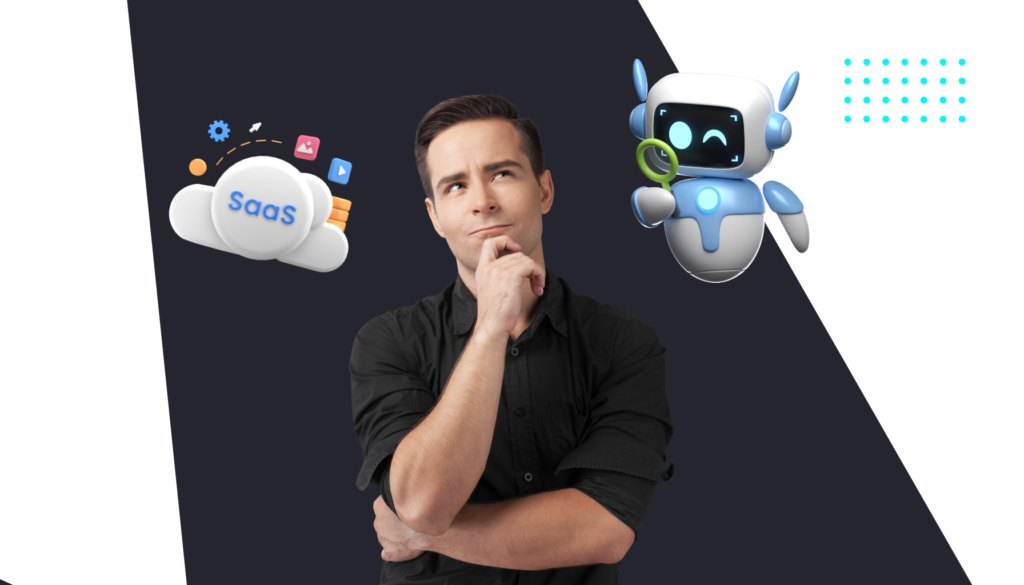
Marketing metrics. This term can leave even the more experienced marketer restless. But hold on a second! Understanding and effectively using marketing metrics can be the difference between your SaaS business flourishing or floundering. These metrics provide invaluable insights into your marketing performance, enabling you to make data-driven decisions and ultimately drive growth and success for your business.
The importance of marketing metrics can’t be overstated, especially in the SaaS B2B industry.According to a study by HubSpot, companies that track their marketing metrics are 20% more likely to see an increase in ROI compared to those that don’t. This highlights the importance of paying close attention to these metrics.
By understanding and utilizing the right metrics, you can gain valuable insights into your marketing performance, make data-driven decisions, and ultimately drive growth and success for your business.
If you’re working for the B2B SaaS industry for a while, you might already be familiar with this next section. If you’re new to this boat, first of all: welcome! Second of all, we encourage you to read this next section carefully, as it might save you a lot of headaches in the future 😉
Table of Contents
The Particularities of SaaS B2B Industry
The SaaS B2B industry is unique. Unlike B2C, where customers are often impulsive and emotionally driven, B2B buyers are a tough crowd. They’re logical, data-driven, and have a long purchasing cycle. They want solutions that can be seamlessly integrated into their existing systems, and they need convincing that your product is worth the investment.
B2B customers don’t just wake up one day and decide to buy a new SaaS product. Their decision-making process is complex and involves multiple stakeholders. They need to see the value in your product, understand how it fits into their current processes, and be assured that it will deliver a significant return on investment. This means your marketing efforts need to be laser-focused, data-driven, and backed by solid metrics.
Another unique aspect of the SaaS B2B industry is the emphasis on long-term relationships. Unlike one-time purchases, SaaS products are typically sold on a subscription basis. This means customer retention is just as important as customer acquisition. You need to continually provide value to your customers to keep them coming back month after month.
SaaS B2B Marketing
Marketing to this audience requires a deep understanding of the market, the customer, and the value your product brings to the table. Here are some key points to consider:
- Understanding the SaaS B2B customer: SaaS B2B customers are looking for efficiency and ROI. They need detailed information about how your product will solve their problems and fit into their operations. Unlike B2C customers who may buy on a whim, B2B customers engage in extensive research and require robust evidence of the product’s efficacy. They want detailed case studies, in-depth demos, and comprehensive documentation.
- The customer journey: the customer journey in SaaS B2B is complex. It involves multiple touchpoints and decision-makers. From awareness to consideration to decision, each stage requires targeted content and strategies to guide the prospect forward. The journey can span weeks, months, or even years, involving everything from initial awareness through content marketing to detailed negotiations and contract signings.
- Content is king: in the SaaS B2B world, content is everything. Whitepapers, case studies, webinars, and detailed product guides are essential to educate potential customers and build trust. Educational content helps potential customers understand the value of your product and how it can solve their problems. Providing valuable content not only helps in attracting leads but also in nurturing them through the sales funnel.
- Long-term relationships: B2B SaaS marketing is not just about acquiring customers but also about retaining them. Building long-term relationships through excellent customer support, regular updates, and ongoing communication is crucial. Customer success teams play a pivotal role in ensuring that customers derive maximum value from the product, leading to renewals and upsells.
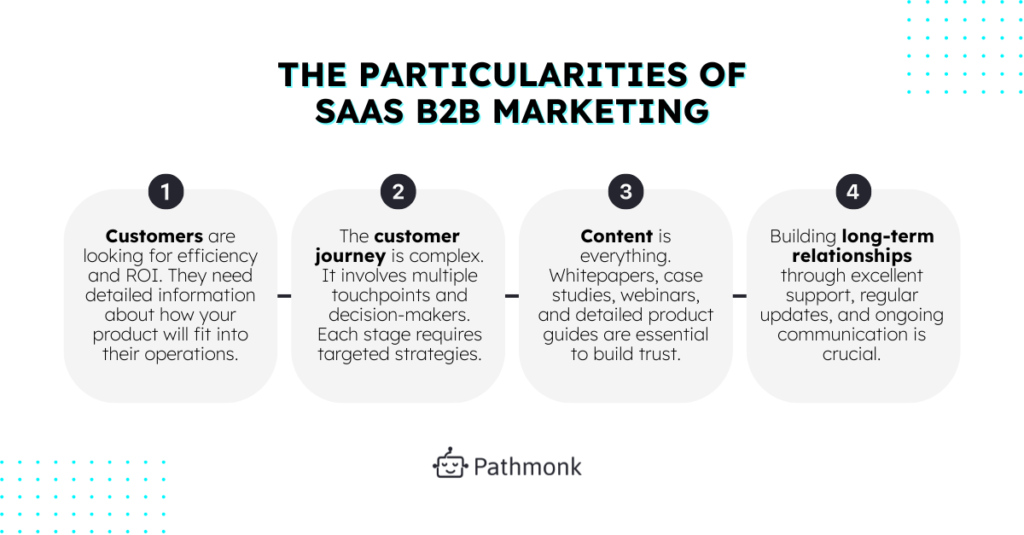
Relevant SaaS B2B Marketing Metrics
Now, let’s get to the heart of the matter. Here are the top 10 SaaS B2B marketing metrics you need to track, along with how to measure them and why they are important. Remember to save this content for later, in case you need some recap!
1. Customer Acquisition Cost (CAC):
- How it’s measured: total sales and marketing expenses / number of new customers acquired.
- Why it’s important: this metric tells you how much you’re spending to acquire each new customer. It helps you assess the efficiency of your marketing efforts and determine if you’re spending wisely.
2. Customer Lifetime Value (CLV):
- How it’s measured: average purchase value x number of purchases per year x average customer lifespan.
- Why it’s important: CLV helps you understand the total revenue you can expect from a single customer. This metric is crucial for determining how much you can afford to spend on customer acquisition.
3. Monthly Recurring Revenue (MRR):
- How it’s measured: sum of all subscription revenue in a month.
- Why it’s important: MRR provides a snapshot of your company’s predictable revenue stream, allowing you to forecast growth and budget effectively.
4. Churn Rate:
- How it’s measured: (number of customers lost during a period / number of customers at the start of the period) x 100.
- Why it’s important: churn rate indicates how well you’re retaining customers. High churn rates can signal problems with your product or customer satisfaction.
5. Lead-to-Customer Conversion Rate:
- How it’s measured: (number of new customers / number of leads) x 100.
- Why it’s important: this metric shows the effectiveness of your sales funnel. A low conversion rate might mean you need to refine your lead nurturing strategies.
6. Average Revenue Per User (ARPU):
- How it’s measured: total revenue / number of users.
- Why it’s important: ARPU helps you understand the revenue generated per user, providing insights into pricing strategies and customer value.
7. Net Promoter Score (NPS):
- How it’s measured: customers rate their likelihood of recommending your product on a scale of 0-10. NPS = % Promoters (9-10) – % Detractors (0-6).
- Why it’s important: NPS is a measure of customer satisfaction and loyalty. A high NPS indicates happy customers who are likely to refer others.
8. Customer Engagement Score:
- How it’s measured: composite score based on activities like login frequency, feature usage, and customer support interactions.
- Why it’s important: this score helps you gauge how actively customers are using your product, indicating overall satisfaction and potential for retention.
9. Marketing Qualified Leads (MQLs):
- How it’s measured: number of leads that meet the criteria set by your marketing team.
- Why it’s important: tracking MQLs ensures that your marketing efforts are generating leads that are likely to convert into customers.
10. Sales Qualified Leads (SQLs):
- How it’s measured: number of leads that meet the criteria set by your sales team.
- Why it’s important: SQLs are a subset of MQLs that are ready for direct sales follow-up, ensuring your sales team focuses on high-potential leads.
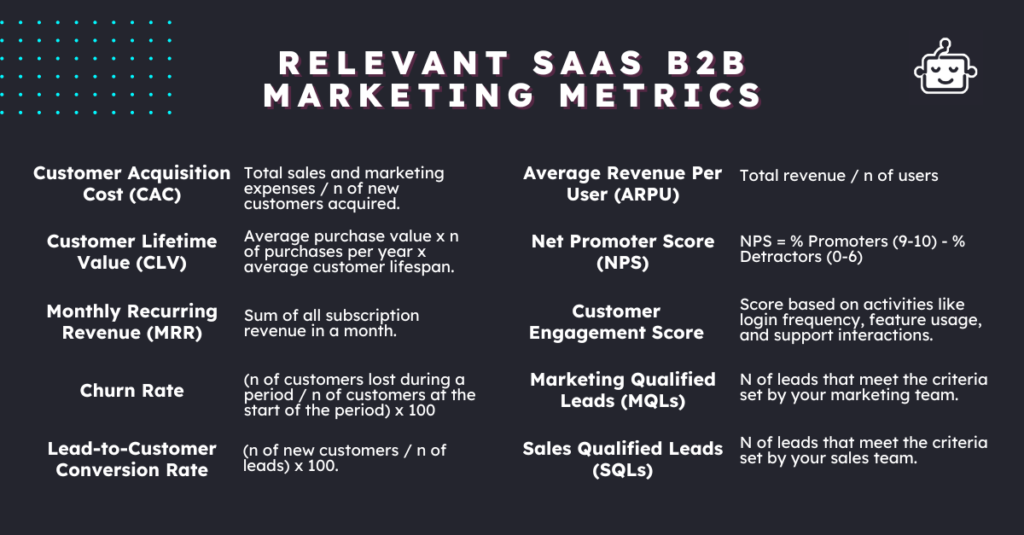
Additional Metrics to Consider for SaaS B2B Marketing
Beyond the top 10 metrics, there are other important indicators that can provide deeper insights into your marketing performance and customer behavior:
1. Customer Health Score:
- How it’s measured: a composite score based on various customer behavior indicators such as product usage, support tickets, and satisfaction surveys.
- Why it’s important: This metric helps predict customer churn and identifies those who might be at risk, allowing proactive measures to retain them.
2. Time to Value (TTV):
- How it’s measured: the time it takes for a customer to realize the value of your product after purchasing.
- Why it’s important: shorter TTV means quicker customer satisfaction and retention, leading to faster growth and a better customer experience.
3. Viral Coefficient:
- How it’s measured: the number of new users generated by existing users through referrals.
- Why it’s important: t high viral coefficient indicates effective word-of-mouth marketing and organic growth potential.
Transform your SaaS CRO strategy with AI
Dive deep into the latest AI-powered trends and gain a competitive edge in the SaaS industry.
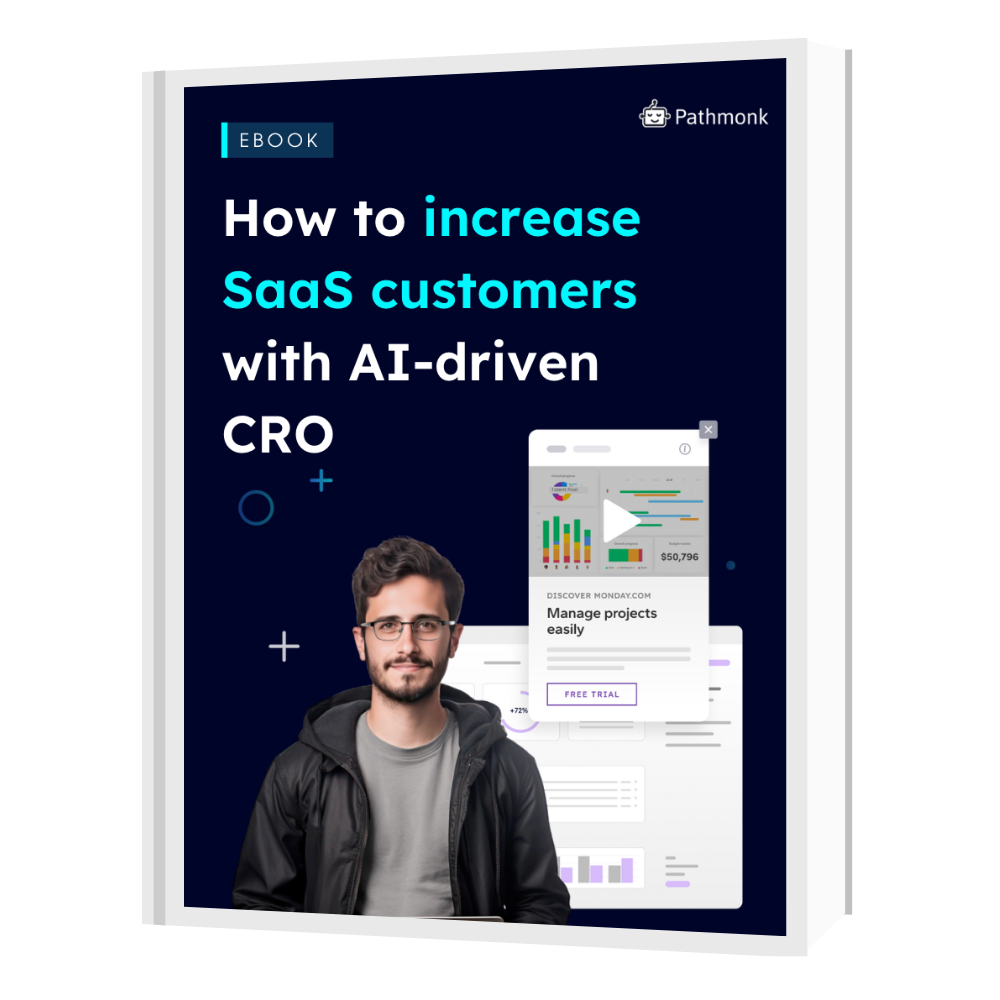
The Importance of Website Personalization for the SaaS B2B Industry
Website personalization plays a crucial role in maximizing the effectiveness of your SaaS B2B marketing efforts. This powerful action can heavily influence the metrics we’ve discussed, and the efficiency of all your marketing b2b campaigns.
- Enhances user experience: personalized content makes visitors feel valued and understood, which can lead to increased engagement. Higher engagement rates can positively impact your Customer Engagement Score, indicating a more satisfied and involved user base.
- Boosts conversion rates: when potential customers see content specifically tailored to their needs, they are more likely to convert. This directly influences your Lead-to-Customer Conversion Rate, as personalized experiences can streamline the path from MQL to SQL to a paying customer.
- Improves customer retention: personalization can significantly improve customer retention by providing relevant updates and offers that cater to individual customer needs. This can help reduce your Churn Rate and increase your Customer Lifetime Value (CLV).
- Provides valuable insights: personalization tools collect data on customer behavior and preferences, offering valuable insights that can refine your marketing strategies. This data can enhance your understanding of Average Revenue Per User (ARPU) and inform adjustments to improve overall revenue.
- Competitive advantage: in a crowded market, personalization can set you apart from competitors. Providing a personalized experience shows your commitment to meeting customer needs, which can enhance your Net Promoter Score (NPS) as satisfied customers are more likely to recommend your product.
- Facilitates targeted marketing: personalized websites allow for more precise targeting, ensuring that your content and offers are relevant to each visitor. This can lead to higher engagement rates and more effective lead nurturing, ultimately boosting the number of Marketing Qualified Leads (MQLs) and Sales Qualified Leads (SQLs).
Optimizing Conversions for SaaS B2B Marketing
For SaaS B2B companies, where the customer journey is often long and multifaceted, Pathmonk Accelerate provides the critical edge needed to turn interest into action. The magic lies in its ability to understand and predict user behavior in real-time. By analyzing user interactions and patterns, it creates a personalized experience that resonates with each visitor, making them more likely to engage and convert.
For SaaS B2B companies, where decision-makers require extensive information and assurance before making a purchase, this level of personalization is invaluable. Pathmonk Accelerate ensures that your potential customers see the most relevant information exactly when they need it. This tailored approach can significantly improve your Lead-to-Customer Conversion Rate, making your marketing efforts more efficient and effective.
Moreover, Pathmonk Accelerate addresses a critical challenge in B2B marketing: the ability to nurture leads throughout a prolonged sales cycle. By keeping visitors engaged with personalized content and timely interactions, it helps maintain their interest and moves them steadily towards making a decision. This is particularly important for SaaS B2B companies, where losing a lead can mean months of lost potential revenue.
Increase +180% conversions from your website with AI
Get more conversions from your existing traffic by delivering personalized experiences in real time.
- Adapt your website to each visitor’s intent automatically
- Increase conversions without redesigns or dev work
- Turn anonymous traffic into revenue at scale
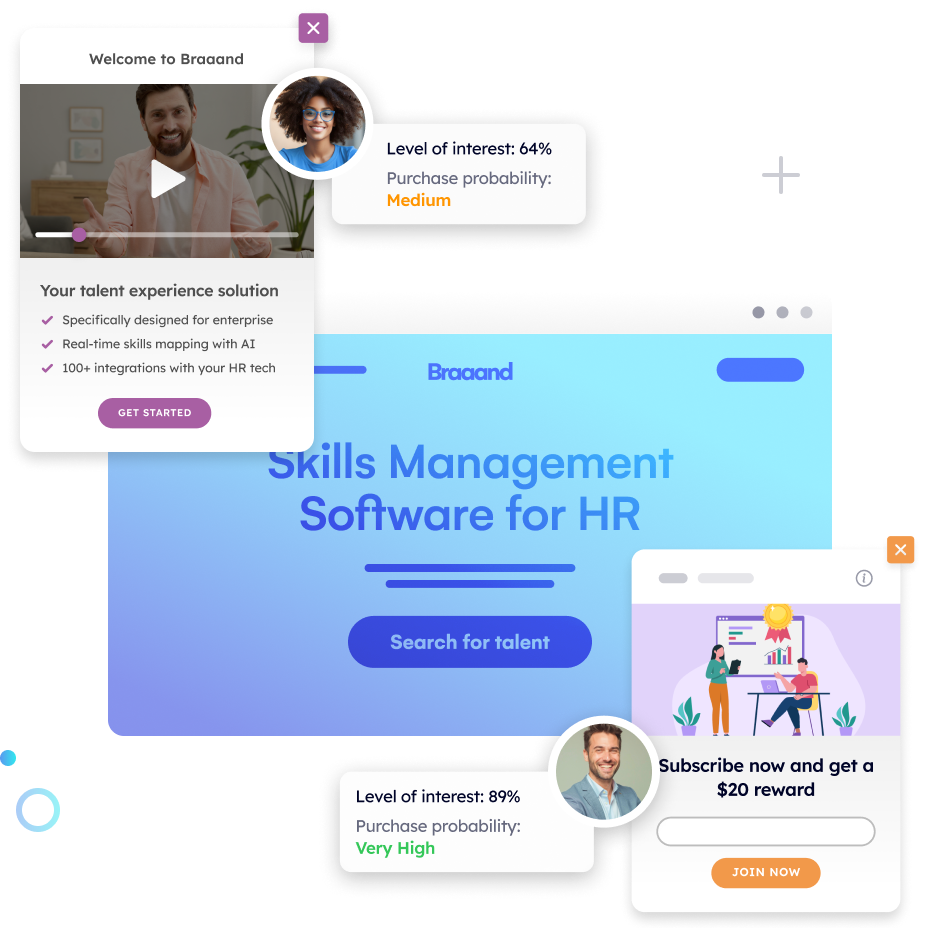
Remember: understanding and utilizing these key SaaS B2B marketing metrics is essential for driving growth and success in the industry. Additionally, leveraging website personalization can enhance user experience, boost conversion rates, and improve customer retention, giving you a competitive advantage in the SaaS B2B market. So, let’s embrace these metrics, personalize our approach, and watch our businesses thrive.

